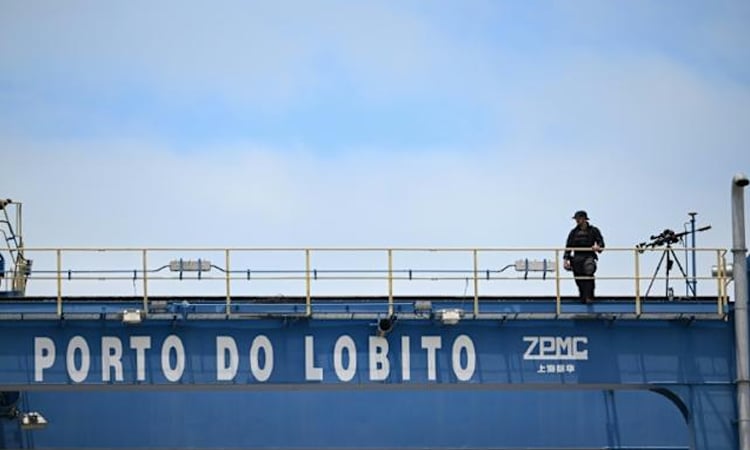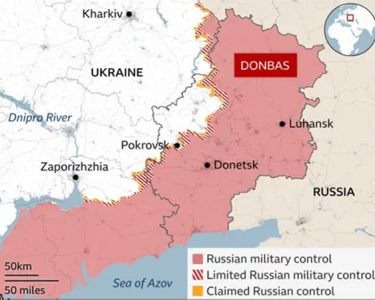
LUANDA, Nov 24 (NNN-AGENCIES) — European and African leaders gather in Angola Monday for a summit aimed at deepening economic and security ties that will serve as a backdrop to emergency talks on Ukraine.
France’s Emmanuel Macron, Germany’s Friedrich Merz and Kenya’s William Ruto are among dozens of European Union and African leaders expected in Luanda amid a US-European rift over a Washington plan to end the Ukraine conflict.
Talks with African nations will centre on trade, migration and critical raw materials.
But EU minds will in part be focused on efforts to push back at a draft plan by US President Donald Trump to stop Russia’s war in Ukraine, proposals initially seen as heavily tilted in favour of Moscow.
After top US and Ukrainian representatives met in Geneva on Sunday for talks on a new version of the proposal, EU leaders were to hold a “special meeting” on the sidelines of the Luanda gathering on Monday.
There is “still a lot of work to be done on the 28-point plan”, Finnish President Alexander Stubb said in Johannesburg on Sunday.
The seventh gathering of its kind, the two-day Angola summit comes on the heels of a G20 meeting in South Africa where a US boycott underscored geopolitical fractures.
It marks 25 years of EU-African Union relations — ties that analysts say need revamping if Europe wants to hold on to its role as the continent’s top partner.
Africa has emerged as a renewed diplomatic battleground, with China, the United States and Russia competing for its minerals, energy potential and political support.
The EU is the leading supplier of foreign direct investment to the continent and its leading commercial counterpart. Trade in goods and services hit 467 billion euros ($538 billion) in 2023, according to Brussels.
Yet it has suffered setbacks, at times fuelled by resentment at the West’s colonial past, with China securing strategic resources in some countries and Russia taking over as preferred security partner in others.
The Gulf states and Turkey have also made significant inroads, granting African nations choice and bargaining power vis-a-vis the EU, said Geert Laporte of ECDPM, a European think tank.
“We don’t have that situation anymore where Europe was the only partner,” he said. EU capitals now need to come up with an “offer that is attractive enough to beat” the competition, he added.
That would require investments in infrastructure, energy and industrial projects that generate employment and economic growth in Africa — and a move away from lofty statements of support, observers say.
“Africa is looking not for new declarations but for credible, implementable commitments,” said AU spokesman Nuur Mohamud Sheekh.
Tackling illegal migration to Europe and security cooperation are on the agenda, as is a diplomatic push to grant Africa a stronger voice in global governance bodies.
But boosting trade will likely be the top priority, as US tariffs buffet both continents.
The EU is expected to offer its expertise to help build up intra-African trade, which currently accounts for a paltry 15 percent of the total, diplomats said.
It will also seek to secure critical minerals needed for its green transition and ease its dependency on China for rare earths, essential for tech and electronic goods.
The 27-nation bloc will likely showcase new investments under the Global Gateway — a massive infrastructure plan that Brussels hopes can counter China’s growing influence.
Summit-host Angola is home to one of the EU initiative’s signature undertakings: the Lobito corridor, a railway project funded in partnership with the United States to connect mineral-rich areas of the Democratic Republic of Congo and Zambia to the Atlantic coast.
EU diplomats have been at pains to present such projects as win-wins but critics retort that the scheme repeats some extractive colonial practices and has yet to deliver significant improvements for local communities.
“Investment must move from PowerPoint to the factory floor,” said Ikemesit Effiong, of the Nigeria-based consultancy SBM Intelligence.
“Europe’s credibility now depends on whether it can support the delivery of projects that create value in Africa, not just visibility for Brussels.” — NNN-AGENCIES




